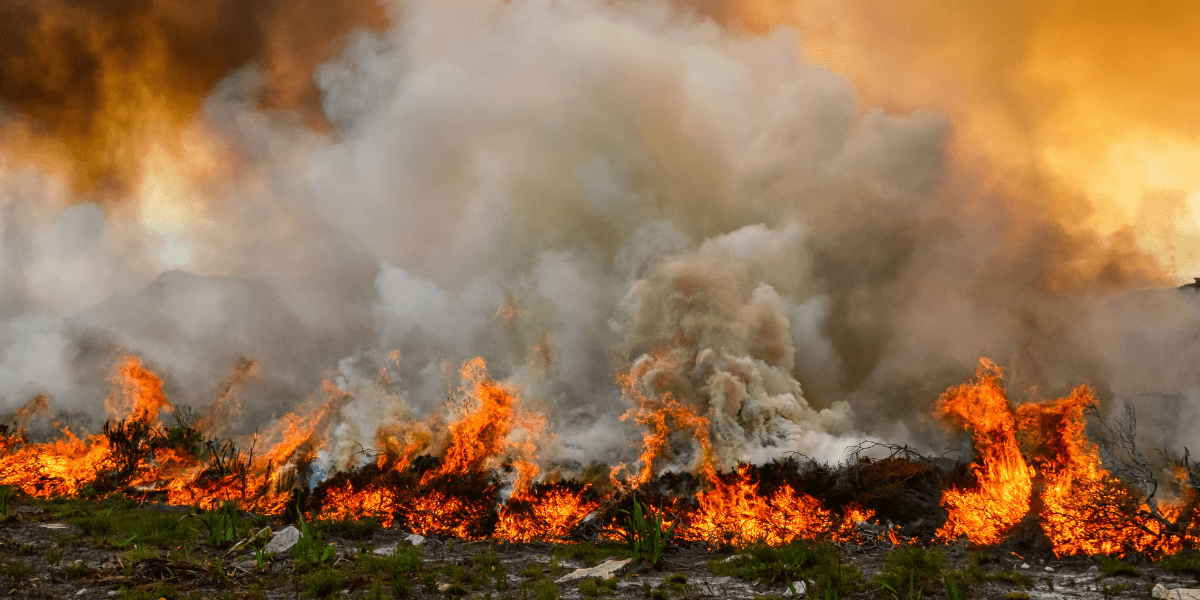WATERTOWN, NY January 23, 2025 – In response to the wildfires that continue across Southern California, Veterinarians Without Borders North America (VWB) is providing critical support to on-the-ground organizations that are helping animals and their guardians that have been affected by the fires. Through a partnership with Living Free Animal Sanctuary and other local organizations, VWB is ensuring that life-saving care reaches those who need it most.
“VWB is committed to providing swift responses to emergencies, including natural disasters like the wildfires that have been simply devastating for Southern California,” said Charmaine Brett, Executive Director of VWB. “Our hearts go out to the families and animals that have been impacted by these out-of-control blazes. As part of our work to build a healthier future for animals, people, and their environments, we’re ensuring that veterinary care and shelter are accessible during this critical time. By investing in local organizations, like Living Free Sanctuary and other on-the-ground organizations, we are working to hard to ensure that emergency care is accessible to those who need it most today, while also laying the groundwork for communities to begin the long process of rebuilding," said Brett.
To date, the wildfires are the worst in the history of Los Angeles and some of the most deadly and destructive in California history. Twenty-seven people have been killed by the fires and more than 13,600 structures have been destroyed.
Living Free Animal Sanctuary, based in Mountain Center, California, is a key partner in this response, and working closely with local authorities to rescue and transport animals—including dogs, horses, pigs, and others—affected by the fires. Once at the sanctuary, animals are receiving shelter, health assessments, and if necessary, care to ensure they can heal and remain comfortable. The sanctuary also plans to offer equine therapy to first responders in the coming weeks and months to support their recovery.
In addition to supporting Living Free, VWB is working with local assistance programs to provide pet care vouchers of $250–$500 to evacuees with pets, helping them cover critical expenses such as emergency veterinary care, pet food, leashes, and other essential supplies.
“During emergencies such as these wildfires, it’s critically important to ensure that animals have a safe place to go in order to remain safe, and if necessary, heal,” added Brett. “We will continue to monitor the situation over the coming days to evaluate if and how we can expand our support even further to local organizations that are helping animals, and pet guardians, in need,” she said.
Ways to help
Every dollar counts in this urgent effort. People interested in supporting animals in need can visit vwb.org/californiawildfires to support can help ensure that animals impacted by these fires are rescued, treated, and given the care they need to recover.
If you’re unable to make a gift today, individuals can also help us spread the word by sharing this message with their networks.
Media Contact
Laura Eley
Communications and Media Relations Manager
E: laura@vwb.org
C: +1 343-633-0272
About Veterinarians Without Borders North America
Using a One Health approach, Veterinarians Without Borders (VWB) works for, and with, communities in need to foster the health of animals, people and the environments that sustain us. VWB works in Africa and Asia to improve the living conditions of the most disadvantaged rural populations through veterinary and agricultural services, sustainable animal production, training, value chain development and sustainable natural resource management. Additionally, we support remote Northern Canadian communities to improve animal health through temporary spay and neuter clinics, reduce the spread of rabies, and work to create the conditions for long-term, community-led sustainable animal health services.
Learn more at vwb.org
-30-





